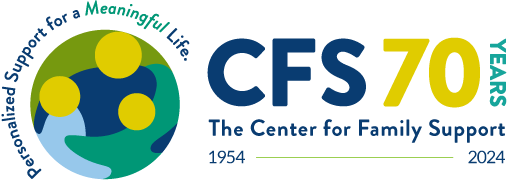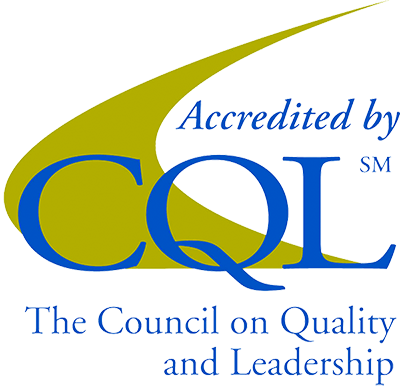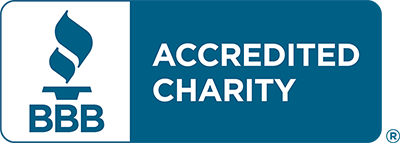
COVID-19: Designated Mitigation and Oversight
Dear CFS Employee:
The Governor and the NYS Department of Health (DOH) have begun to identify geographic areas with higher than average rates of COVID-19 transmissions, referred to as “hot spots”, “clusters”, and “micro clusters”. The risk of COVID-19 transmission, within these areas, are characterized by three colors (RED, ORANGE, and YELLOW).
Based upon this new government health guidance, we are strongly recommending that those of you that live or work in any of these zones get tested on a weekly basis for COVID-19.
To determine if you live/work in one of the designated zones, you can enter your address and/or work site address at https://www1.nyc.gov/site/doh/covid/covid-19-main.page?utm_source=Google_Search&utm_medium=English&utm_campaign=Coronavirus&gclid=EAIaIQobChMI1-Glqrfz-AIVx_rICh0BHglQEAAYASAAEgLjgPD_BwE.
You can find your nearest testing site at https://coronavirus.health.ny.gov/find-test-site-near-you.
If you have any questions, or require assistance, please contact our Human Resources department at HRclustertesting@cfsny.org. Additionally, please note that you will be required to notify HR of your test results.
Thank you.
CFS CLUSTER INITIATIVE MEETING NOV 3RD, 2020
IMPORTANCE OF CORONAVIRUS TESTING
COVID-19 CFSNY HUMAN RESOURCE FAQs
Coronavirus Protocols:
We continue to update our policies and procedures to be in line with government mandates. The health and safety of the individuals we support, and staff are a priority. As we monitor the situation, we request that you follow the required protocols listed on this page and provided at your locations.
Overall, to reduce risk of exposure we are requiring that all staff do the following:
- Staff are required to wear a face covering at all times when providing a direct service.
- Wash your hands regularly with soap and water. Use hand sanitizer to disinfect hands when soap and water is not available.
- Avoid touching your face.
- Stay home if you are feeling sick or displaying signs and symptoms of covid-19 which include a fever (above 100), shortness of breath, sore throat, persistent cough, frequent headaches, new loss of taste or smell, body aches and chills. Call your supervisor and your doctor if you are displaying symptoms.
- Maintain appropriate social distance whenever possible.
- To comply with DOH regulations of contact tracing, you will need to report to us right away if you test positive for covid-19; or have received a quarantine order; and/or if you have come into contact with someone who has tested positive.
- If you plan to travel to or have traveled to a country that is on the CDC travel restriction list or a state that is on the DOH high risk state list you will to alert your supervisor. See the links below for an up to date list. If you travel to one of the high risk countries or states, you will need to quarantine for 14 days.
- Staff will sign an oath of responsibility that indicates their commitment to ensuring that they do whatever is in their power to reduce risk of exposure while at work and at home.
Oath of Responsibility:
CLICK HERE to download the Oath of Responsibility form.
Face Coverings:
Mask Wearing 101: How to Properly Use & Re-use a Mask
CDC Morbifity and Mortality Weekly Report – Feb 10th, 20210
CLICK HERE for the “Maximizing Fit for Cloth and Medical Procedure Masks” Article
CDC’s Your Guide to Masks
- English: CLICK HERE
- En Español: HAGA CLIC AQUÍ
Handwashing – Clean Hands Save Lives:
CLICK HERE for the CDC’s Handwashing: Clean Hands Save Lives Video Series.
CFS Day Hab Staff Screening During COVID 19
CLICK HERE to Access and Sign the Day Hab Staff Screening During COVID 19 Form.
CFS NY Office Staff Screening During COVID 19
CLICK HERE to Access and Sign the CFS-NY COVID-19 Daily Office Screening Form.
CFS NJ Office Staff Screening During COVID 19
CLICK HERE to Access and Sign the CFS-NJ COVID-19 Daily Office Screening Form.
Travel RestriCtions Resources
- Country Travel Restrictions Released by CDC
- High Risk State Travel Restrictions Released by NY Department of Health
Mental & Emotional Health COVID-19 Resources
COVID 19 New York City Emotional Help
New York State Office of Mental Health COVID-19 Resources
New Jersey Resources
CFS Safety Guidelines for Returning to the Community:
En Español:
CDC Information
- CDC Strategies for Optimizing Surgical and N95 Mask Supply and Use
- Centers for Disease Control and Prevention (CDC) Coronavirus Disease 2019 (COVID-19) Information Portal
- CDC’s Preventing COVID-19 Spread in Communities
COVID-19 Antibody Testing
New York Resources
- New York Department of Health: Coronavirus Hotline 1-888-364-3065 | Coronavirus Info Page
- Interim Containment Guidance from NYS DOH – Precautionary Quarantine, Mandatory Quarantine and Mandatory Isolation
- FOR NEW YORK CITY RESIDENTS, text COVID to 692692 to receive regular updates from the city.
- What You Need to Know About Coronavirus (In ASL)
New Jersey Resources
- New Jersey Department of Health: Coronavirus Hotline 1-800-222-1222
- NJ has a link that allows you to connect with your local health department– https://localhealth.nj.gov
Environmental Protection Agency Resources:
OPWDD and NJ DDD Guidance On Visitation:
OPWDD and NJ DDD have issued specific guidance and restrictions on visitation requirements. As you know this is a rapidly evolving situation, please contact the Supervisor of the facility for current and site-specific visitation requirements.
CLICK ANY SECTION BELOW TO OPEN UP AND READ ADDITIONAL INFORMATION
WHAT IS CORONAVIRUS DISEASE 2019 (COVID-19)?
Coronavirus disease 2019 (COVID-19) is a respiratory illness that can spread from person to person.
HOW DOES COVID-19 SPREAD?
Close personal contact, such as touching or shaking hands • between people who are in close contact with one another when an infected person coughs or sneezes • by touching a surface or object that has the virus on it, then touching their own mouth, nose or eyes with unwashed hands.
WHAT ARE THE SYMPTOMS OF COVID-19?
Fever (100.4F) • cough • shortness of breath
HOW CAN I HELP PROTECT MYSELF?
- Avoid close contact with people who are sick
- Avoid touching your eyes, nose, and mouth with unwashed hands
- Wash your hands often with soap and water for at least 20 seconds.
- Use an alcohol-based hand sanitizer that contains at least 60% alcohol if soap and water are not available
IF YOU ARE SICK, TO KEEP FROM SPREADING RESPIRATORY ILLNESS TO OTHERS, YOU SHOULD:
- Stay home when you are sick
- Cover your cough or sneeze with a tissue, then throw the tissue in the trash
- Clean and disinfect frequently touched objects and surfaces
PREVENT THE SPREAD OF GERMS WITHIN EACH HOME:
- Observe standard Universal Precautions as trained
- Monitor individuals at least once per shift; notify nurse or designated staff if the individual show symptoms fever; cough; shortness of breath
- Encourage individual to… • cover your cough or sneeze with a tissue, then throw tissue in the trash.
- Wash hands frequently or use hand sanitizer
- Stay home when showing signs of illness (fever, cough, shortness of breath)
- Stay in their room—if they must leave the room, encourage them to wear a facemask (if tolerated)
- Clean and disinfect frequently touched objects and surfaces
DIRECT SUPPORT PROFESSIONALS – UPDATED INFORMATION AND GUIDANCE
- Direct Support Professionals are essential and integral employees to Office for People With Developmental Disabilities (OPWDD)’s provision of services, and that is especially true during this public health emergency. OPWDD has remained in close consultation with our partners at the New York State Department of Health and the New York State Education Department, as well as with those at the federal and local level, to ensure the health and safety of all staff. In guidance issued by the NYS Education Department, found at: Additional Guidance on Statewide School Closures Due to Novel Coronavirus (COVID-19) Outbreak in New York State – March 17, 2020, DSP’s are classified as essential health care workers: “Essential health care workers may include licensed health professionals such as physicians, nurse practitioners, physician assistants, registered nurses, LPNs and nurse assistants or laboratory personnel and direct support professionals. First responders may include paramedics, emergency medical technicians, police officers, and firefighters.”







